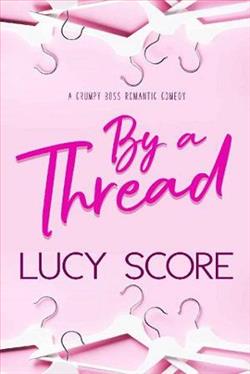Page 3 of The Source of Storms
“There was once a very lonely prince,” Móraí began. “He was a prince by title, but not by power. His older brother had inherited all the wealth and rule of the kingdom, and had given him a steading by the sea to stay out of his business. The young prince ran his steading quite successfully, and year after year he had abundant crops.
“But his prized products were his beautiful fleeces. He had the finest sheep in the kingdom, and for years his black rams and white ewes had made the softest, most silvery lamb fleeces imaginable. He sold his fleeces at the market but still had so many of them, and every day he wished he had a beautiful wife to spin him yarn and weave him lovely things from that precious wool.
“But nobody wanted to live on his distant steading. The girls from town all wanted to be closer to the castle, lest they miss out on any balls or parties. And it was dangerous to be so far from others. The winter nights were long, dark, and full of shadowfiends.
“So, the prince grew more and more lonely with each passing day. He would walk along the shore so the sea spray and rain would hide his tears, and he would pray for a wife to come spin his beautiful wool and keep his bed warm.”
Noirin giggled and I felt myself blush slightly, my thoughts flashing to Sigurd.
Móraí continued, “One evening, the prince was walking along the rocky shore when he saw three women. They were dancing and laughing, naked in the sunset. He hid behind some rocks and watched as they danced joyfully in the sea spray. The setting sun lit them all in gold, and the prince was enchanted.He stole closer to them, and that was when he saw three neat bundles of fur sitting on the rocky shore.”
“Their sealskins!” Irial interrupted.
“Yes, child. Their sealskins. The prince then realized that these women were not just women, oh no, they were something special. These women were selkies. He crept close to them, and snatched one of the sealskins up and hid it away. But the women saw him, and two of them slipped into their sealskins and transformed into seals! They dove into the sea and were gone.
“But one woman, a beautiful woman, with long black hair and large, dark eyes, was left searching desperately for her sealskin. The prince approached her.
“‘Where is my sealskin?’ she asked.
“‘I have it. It is safe with me,’ the prince answered.
“‘Please, give it to me so I may go home with my sisters,’ the beautiful woman begged.
“But the prince refused, unable to tear his eyes away from her beauty.
“‘Stay with me,’ he said. ‘Stay with me and be my wife. You will be happy here. I have a nice home, and I will keep you safe from the shadows.’
“But the woman shook her head. ‘No, I cannot be your wife.’
“‘Please,’ the prince begged. ‘I am so lonely, and you are so beautiful. Stay with me and be my wife for ten years, and then I will give you your sealskin and let you go.’
“The selkie woman saw that she had no choice, and thus said, ‘I will go with you and be your wife for ten years, and then I will return home.’
“So she went with him to his steading. For years she was his wife, and they ran their home together. They had a child, a strong and healthy lad, and the woman taught her son of the sea. She told him the names of the otters, the whales, and the seals,and sang him their songs. She told him about the kelpies and the naiads too.
“But as time went on, her voice grew dull. Her skin dried and her hair turned brittle. She began to lose her sight, for she had been too long from her home.”
I looked to where my mother sat with her legs drawn in close, her hands wrapped around her warm mug. If she was thinking of her own sealskin cloak, she did not show it. I wondered if this story was more than a story for her, but perhaps a memory.
“On the tenth summer since she had gone with the prince, she asked him for her sealskin back. But the prince grew angry and told her she could not have it.
“‘You would leave us! You would abandon your son and your faithful husband,’ he yelled. ‘A bad wife and mother you would be!’
“‘I do not know if I would leave!’ she argued. ‘But I do know it is my choice to make. I know I must have it.’
“He stormed away, refusing her request. She asked him again and again as the seasons turned until, finally, he gave in. With tears in his eyes, he brought out the sealskin from where he had hidden it and gave it to his wife. She embraced him, and then she ran to the sea, pulled it on, and disappeared into the waves.
“But her son saw this and he chased her, crying, begging her to stay. So she came back to the surface and slipped off her sealskin. He saw that her eyes were clear, bright, and sparkling, her hair was silky and her skin glowed. She laughed and scooped her son from the shore, becoming a seal once more and diving with him beneath the waves. She gave him her breath as they dove, and he met the other seals, his aunts and his grandmother and his grandfather. He danced with them and listened to their songs.
“When the boy returned to his father, he found him lonely and bereft, grieving. So he sang him the songs he had learned from the selkies, and his father smiled to hear his beautiful voice. And for all his life the boy sang beautiful songs and brought people joy, for he was of the spirit world and of our world, and he carried in him all the beauty of both.”
Everyone was quiet for a while, until Simidh, Mureal’s youngest boy, spoke up. “Móraí, why didn’t the boy stay with his mother?”
“Do you think you would have gone to live in the sea?” she asked.
“Of course!” Simidh squeaked. “I would live in the ocean, and I would fight sharks with a great spear and become Manannán’s champion!”
“You would not!” piped up Irial. “You’re too skinny, you’d freeze in an instant in the cold water!”















